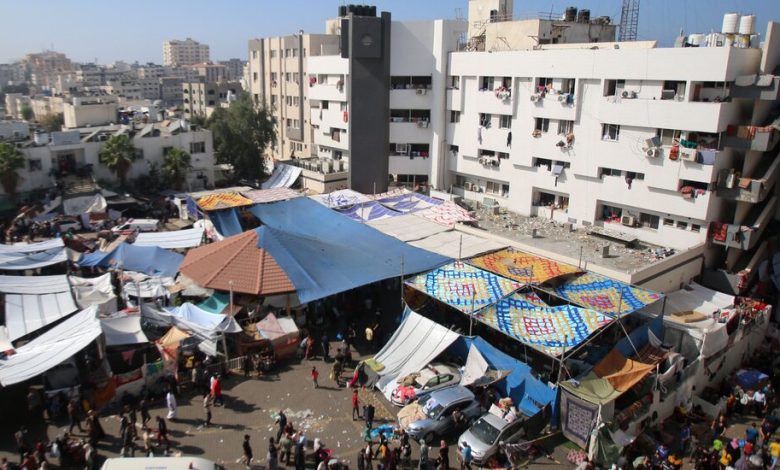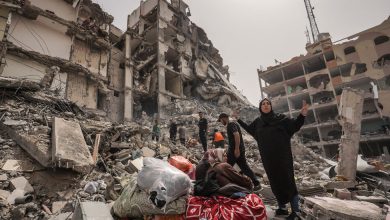How International Law Views Military Action at a Hospital

The Israeli military has seized the Gaza Strip’s largest hospital, Al-Shifa. Israel says it needed to capture the hospital, in Gaza City, to destroy a Hamas command center and underground facilities that it says are there. Hamas and doctors at Al-Shifa deny Israeli allegations of Hamas fighters using the hospital as a base.
Here is what the Geneva Conventions and international criminal law say about hospitals and what protections they have, based on a series of interviews with experts on the laws of war and a reading of the major treaties that set out those laws.
-
Hospitals have special protections under international humanitarian law. It is illegal in nearly all circumstances to attack hospitals, ambulances or other medical facilities, or to interfere with their ability to provide care to the wounded and sick. That is true even if some of their patients are wounded fighters as well as civilians.
Attacking a protected hospital is a war crime that can be prosecuted at the International Criminal Court. Using civilians, like those in a hospital, as human shields for combatants is also prohibited.
-
But there is an exception under which hospitals lose that protection: A hospital or medical facility can lose its special legal status if it is used for a military purpose that is “harmful to the enemy,” rather than just for medical care. For example, if an armed group uses a hospital building as a headquarters, it cannot use the special hospital protection as a shield for that military operation.
The exception is supposed to be read narrowly, according to the Red Cross, which is considered a leading authority on the interpretation of humanitarian law. If there is doubt about whether a hospital is being used for military purposes, it should be presumed not to be, the Red Cross says.
-
Even if the exception applies, an attacking force has to give civilians a chance to evacuate. The Geneva Conventions state that before attacking a military target inside a hospital, the attacking force has to warn the doctors and patients inside that the hospital is going to be a target, and then give them a reasonable amount of time to escape.
Israel has issued frequent warnings to hospitals in northern Gaza that they should evacuate. However, doctors have said that some patients are too fragile to be moved, or that there is no safe or practical evacuation route, raising questions about what could be considered reasonable warning.
-
Even if the exception applies, there are still strict rules that limit how force can be used. Doctors, patients, and other civilians who remain in the hospital after a warning to evacuate are still protected civilians. International humanitarian law says that civilians cannot ever be targeted directly.
The exception applies only under “very narrow conditions,” said Tom Dannenbaum, an associate professor of international law at Tufts University.
-
Proportionality requirements are especially strict when medical care is on the line: Even if a hospital loses its special protection and becomes a military target, the civilians inside are still protected by the rule of proportionality: If the civilian harm caused by an attack is disproportionate to the military advantage it confers, then it’s illegal.
That is a balancing test that depends on the specific facts of the situation. However, the proportionality test is much harder to satisfy when the target is a medical facility, because the likely harm includes the loss of medical care for the civilian community as well as any immediate casualties of the attack itself, Professor Dannenbaum said.
Ephrat Livni and Gaya Gupta contributed reporting.



